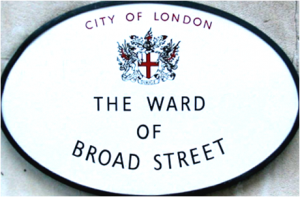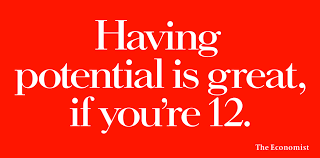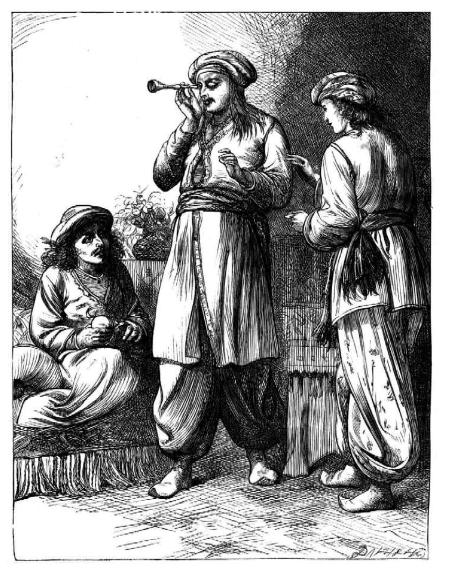On 15 June 2010, the Real Time Club evening’s proposition for discussion was that new technology will move beyond a facsimile of current exchange to new means of exchange that are better for society as a whole. Future e-money synthetic currencies for speculative fiction writers shouldn’t be, “that will be ten galactic credits, thank you”, but rather, “you owe me a return trip to Uranus and a kilogram of platinum for delivery in 12 months”. Well, that’s what our payments autodroid bots (i.e., mobile phones) will agree amongst themselves. Dave sets out his stall: “When you digitise something, you have the opportunity to re-engineer it. So it is with money. As money has changed from barter to bullion, from paper to PayPal, it has changed the markets and societies that depend on it. Where next?

The Eternal Coin
Dave Birch opened in front of about 40 members with a reminder that Hayek always believed that money was too important to be left to governments. Dave argued that we ideally needed many units of account for many things but that multiple currencies increased the cost of transactions markedly – how could the cash register be large enough. He pointed out though that in border areas people seemed able to handle concepts of multiple currencies easily. This led to a quick reminder of the many new currencies emerging online, e.g. QQ in China, but Dave emphasised the crucial role of the mobile phone, e.g. M-Pesa in Africa. Finally, Dave touched on new currencies related more closely to real value, e.g. based on commodities, such as people in Norway using future kwHs of electricity as currency.
The core of the argument was that:
1 – we have reached a time of great change in the nature or money
2 – the mobile phone is the most important technological part of the change
3 – some of the nascent currencies will transform our view of money
Dave concluded by musing on what these changes might mean for definitions of communities and community values across space rather than being confined by geography.
Malcolm Cooper opened his reply by asserting that the mobile phone is a transient technology, witness the iPad. He believed that Dave confused the communications device with the technology. Malcolm, drawing from some of the themes in his book, “In Search of the Eternal Coin: A Long Finance View of History”, felt the aberration over history was currency. The norm is trading and storing value in a multiplicity of ways. As an example Malcolm pointed to the extent of the Carthaginian trading empire and its relatively low use of coinage.
The discussion was, as ever with the Real Time Club, quite vibrant and funny. Some comments and ripostes included:
- shouldn’t we conclude from Dave’s arguments that Nokia ought to be a bank? This led to a further reminder of the 1994 paper by Edward de Bono published by the Centre for the Study of Financial Innovation, “The IBM Dollar”;
- would Carthage have been better off or stronger with currency?
- Michael King of WDX (commercial interest) spoke of his firm’s Wocu (World Currency Unit), a basket of top 20 nations by GDP, weighted by GDP;
- Michael Mainelli raised a point about trading currencies versus stores of value (reserve currencies) and pointed out other initiatives directed at that, e.g. the UTU;
- wasn’t the deeper problem removing swings in markets, or was it perhaps that swings in markets were exacerbated by our reliance on currency?
- the use of the quote from Dostoevsky, “money is coined liberty” (House of the Dead, part 1, chapter 2) led to a ponder as to whether we are at our most vulnerable when everything is cash;
- people were reminded that fiat currency is fiat because the government only accepts the currency for tax purposes, giving government other opportunities to tax through debasement and devaluation and inflation;
- was the importance of the mobile phone the global connective power and little else, followed by a comment that these days a mobile phone was hardly that, rather a computer with a phone attached;
- a discussion kicked off on the importance of anonymity to money, including the withdrawal of cheques in the UK, and of course the Real Time Club’s interest in many things cryptographic.
The evening closed with a poem, “Liquidity”, composed on the night and read by long-standing member Andy Low:
The lake of commerce gives life its pace,
For on its smooth and shiny face,
Ripples form, surge forth and race.
(What do I want, what can I get)
They cross, connect and intersect.
The lives of people who’ve never met.
About the speakers
Dave Birch is a Director of Consult Hyperion, the IT management consultancy that specialises in electronic transactions. Here he provides specialist consultancy support to clients around the world, including all of the leading payment brands, major telecommunications providers, governments bodies and international organisations including the OECD. Before helping to found Consult Hyperion in 1986, he spent several years working as a consultant in Europe, the Far East and North America. He graduated from the University of Southampton with a BSc (Hons) in Physics.
Described by The Telegraph as “one of the world’s leading experts on digital money”, by The Independent as a “grade-A geek”, by the Centre for the Study of Financial Innovation as “one of the most user-friendly of the UK’s uber-techies” and by Financial World as “mad”, Dave is a member of the editorial board of the E-Finance & Payments Law and Policy Journal, a columnist for SPEED and well-known for his blogs on Digital Money and Digital Identity. He has lectured to MBA level on the impact of new information and communications technologies, contributed to publications ranging from the Parliamentary IT Review to Prospect and wrote a Guardian column for many years. He is a media commentator on electronic business issues and has appeared on BBC television and radio, Sky and other channels around the world. For much more, see www.dgwbirch.com
Dr Malcolm Cooper holds a First Class Bachelor of Arts in History from Dalhousie University, a Master of Arts in History from the University of Western Ontario, and a Doctorate of Philosophy in Modern History from Oxford University. His thesis on the formation of the Royal Air Force was subsequently developed into a book, The Birth of Independent Air Power, and published in 1986. His career has included a Research Fellowship at Downing College, Cambridge, management of the research programme of the Institute of Chartered Accountants in England and Wales, equity research management with three different investment banks (none of which, alas, exist today under their original name), and a five year spell as Head of Research for the City of London Corporation. His most recent post was as Head of research for the independent public policy think tank Centre for Cities.
Malcolm was the first foreigner to take up coverage of the Istanbul and Athens stock markets and spent most of his investment banking career in European emerging markets, his last post being as Head of EMEA Equity Research for ABN-AMRO (a job he gave up in 2000 – not because he could see the dot.com crash coming, but because he decided he really didn’t want to be on the Central Line at 6.30 in the morning any more). Most of his recent work has been in the UK public policy field but be retains an active interest in the more challenging parts of the world, and is still inordinately proud of having a letter published in The Times pointing out some of the more obvious problems with the UK’s current military commitments in Afghanistan. He has also published several pieces on Turkey, including an article in International Affairs, a written submission to the Commons Select Committee and a contribution to a Chatham House forecast of likely regional scenarios following the second Iraq war.




![039bc[1]](http://www.mainelli.org/wp-content/uploads/2014/03/039bc1-300x176.jpg)


